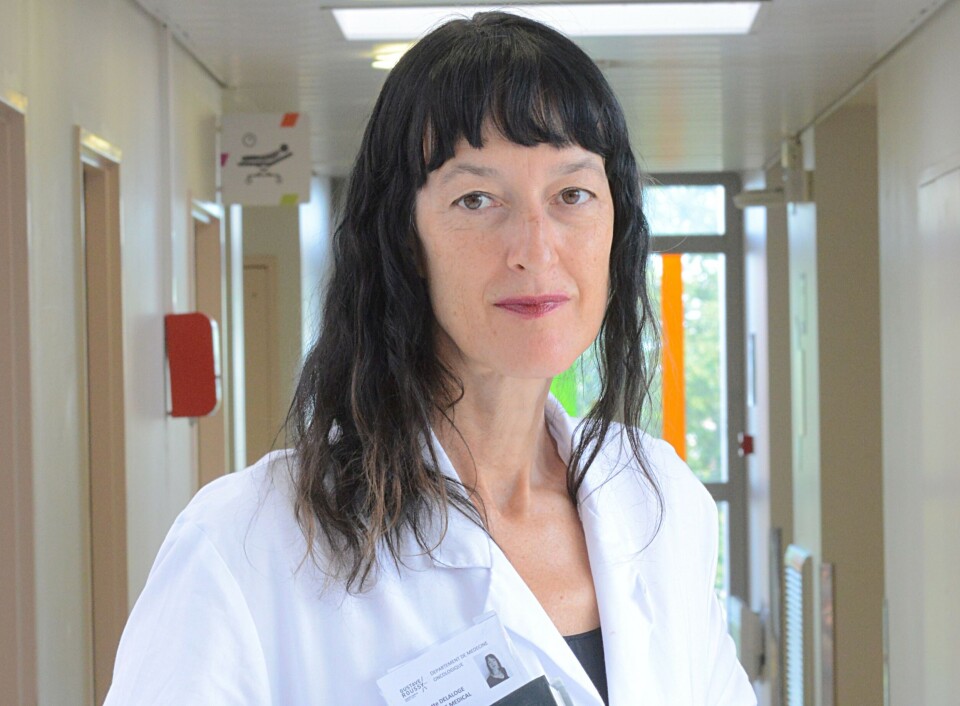-
Pistes closed, confinement orders: Alpine resorts deal with avalanche risk
Increased snowfall this weekend may cause further closures as busy school holiday season continues
-
Former French Interior Minister announces 2027 presidential candidacy
Bruno Retailleau recently asked prefectures to be tough on immigration
-
Ryanair axes Dublin-Rodez route but London connection retained
“We are disappointed but had no say in decision” say airport authorities
'Identifying those at risk of cancer before they fall ill is key aim'
Oncologist at the renowned Gustave Roussy cancer hospital in Paris, Dr Suzette Delaloge, is leading a new type of screening aiming to identify cancer risk before symptoms

The 10-year anti-cancer plan focuses on the necessary key areas but it must be backed up by action and investment, says Dr Delaloge.
“In terms of prevention, we are very far behind other countries,” she said. “The UK is the most advanced in Europe in this field, and the US has major programmes.
“In France, prevention remains traditional and microscopic, with little investment. We have a great deal of catching up to do.”
One issue is that scepticism over healthcare procedures is high. Mass screening is therefore not the only answer and a more personalised approach is needed, she said.
“In the French system, there is more equality in access to care than in any other country, but people have low confidence in the care they receive.
“We have the most activism against breast screening in Europe, perhaps the world. A small part of the population believes it is inadmissible that every woman should have a mammogram to avoid one death out of 100 by cancer, because they may waste their time and maybe get a wrong diagnosis. It is similar to the Covid anti-vax movement.
“Only 40% who were eligible came for breast cancer screening in 2020 and 35% for cancer of the colon. It is a disaster.”
Dr Delaloge introduced a prevention programme, Interception, in January. It works by targeting those at risk.
“Some 30-40% of people who develop cancer could have been identified as being at risk years before they have a diagnosis.
“We work with GPs and help them identify potential candidates by looking at family history, whether they smoke, drink heavily, are in contact with toxic products at work, or had cancer in their youth, etc. We have free software to help them assess the risk.” Those identified are invited for an awareness day with information on lifestyle changes to avoid cancer developing.
“There is a high demand. People love to come. For one day, a whole team will be interested in their health. The aim is not to make them feel they are ill but to prevent them from becoming ill. We draw up a personalised long-term plan with their doctor. At the first signs of a symptom, they can be referred to the hospital.”
Early detection is not only about saving lives, it is also about quality of life.
“If you have a cancer of the colon, you will have surgery, perhaps a colostomy bag, you may suffer brain issues due to chemotherapy, and chronic fatigue.”
Dr Delaloge is co-ordinating an EU-funded programme, MyPeBS, across six countries, including the UK, to compare the efficiency of personalised riskbased screening to standard screening among 85,000 women aged 40 to 70.
“The idea is to show which system is more efficient. So far, we have 15,000 signed up, so need more.” See mypebs.eu.
Related stories
France's 10-year plan aims to cut high number of avoidable cancers
























